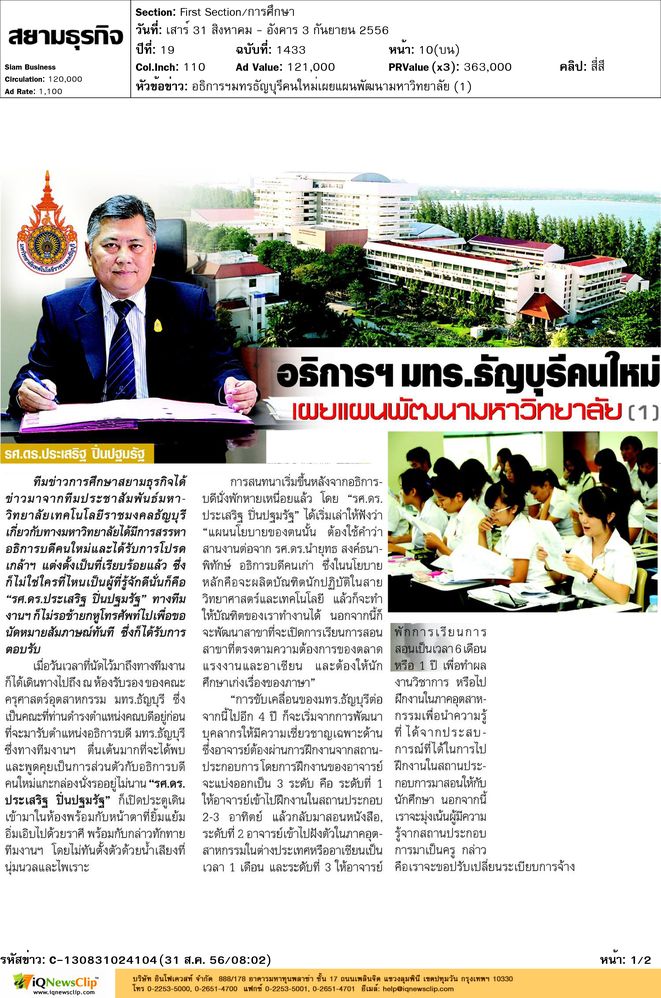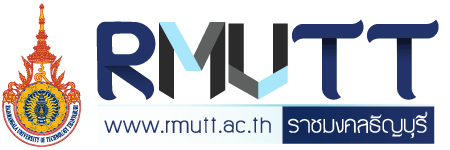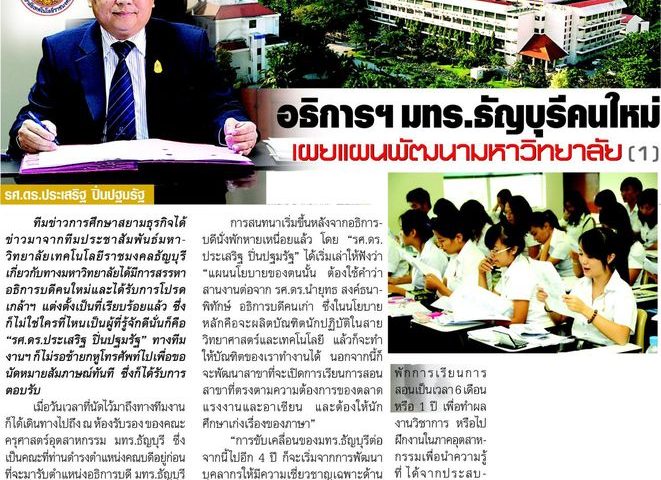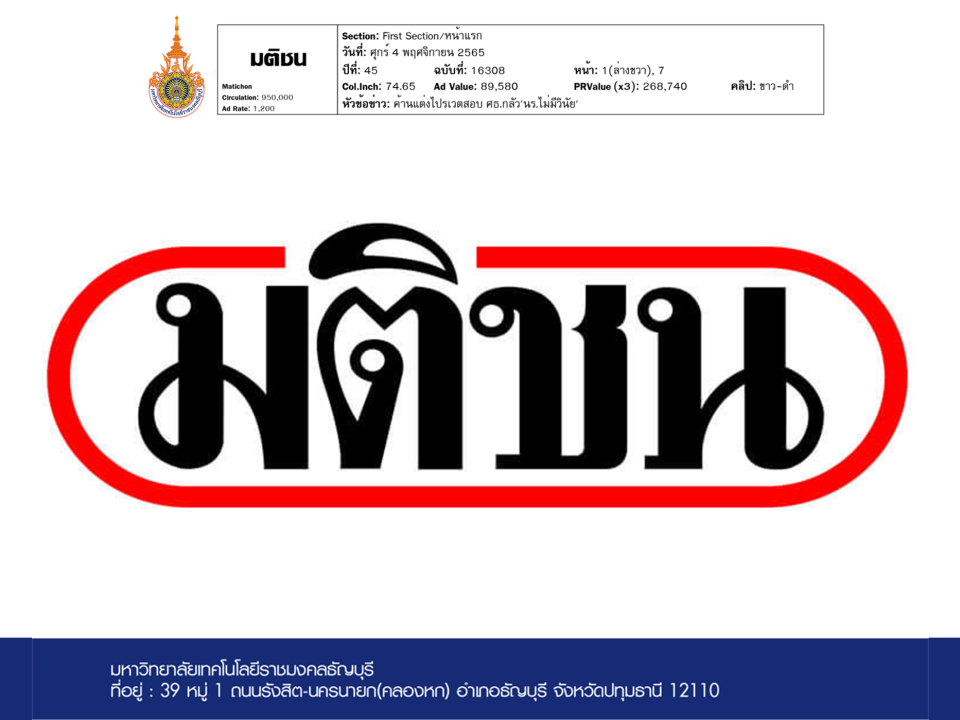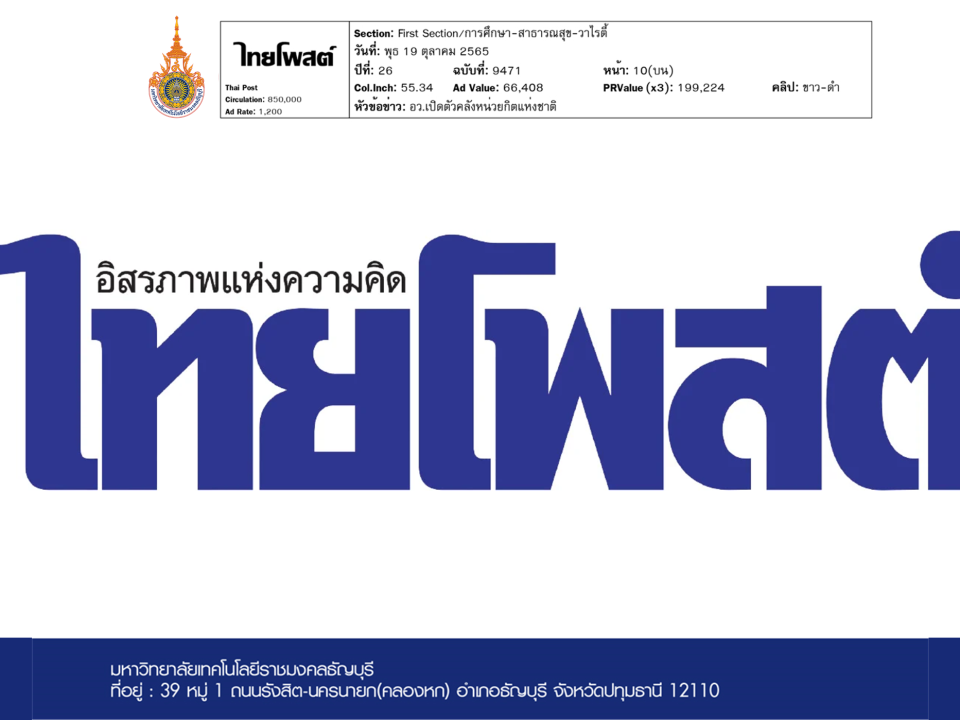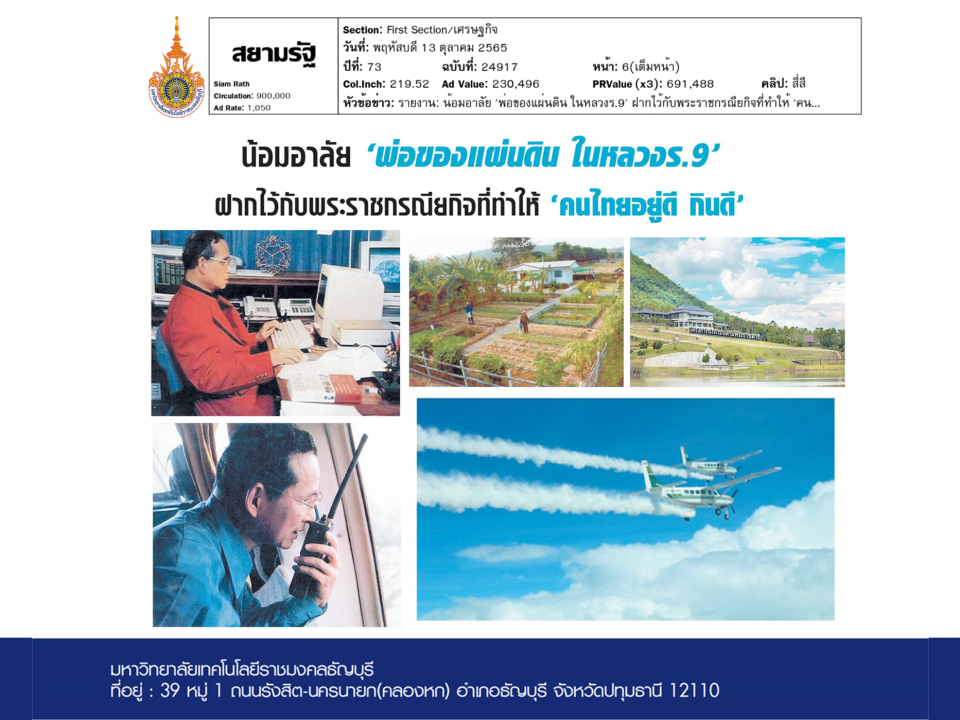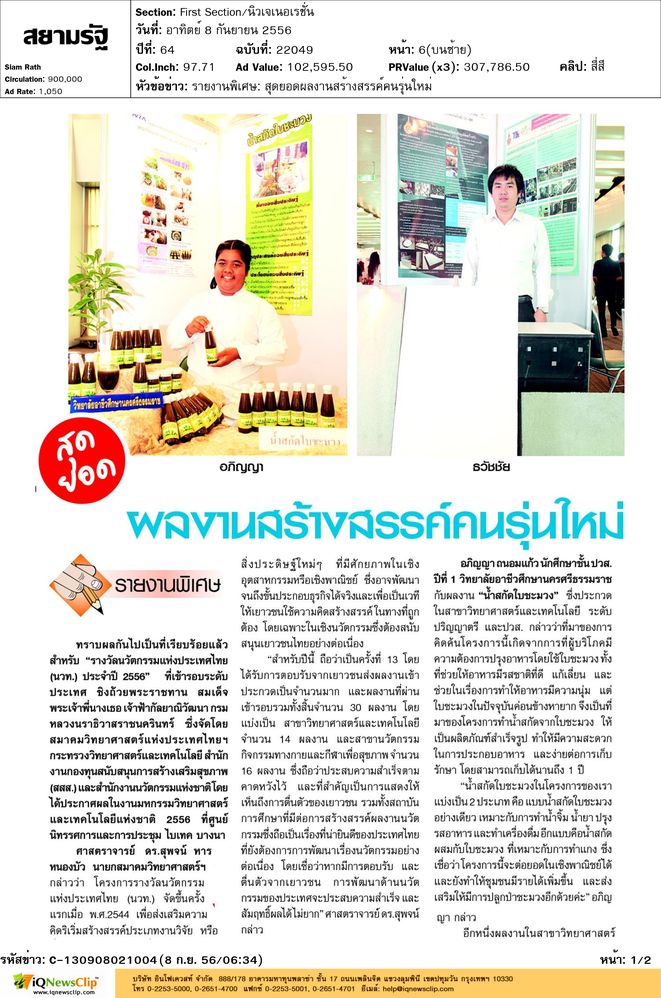
Finalists Announced: Thailand’s Novel Research and Innovation Awards 2013
20/09/2013
Newly Appointed University President Reveals Strategies for Future Development (Part 2)
20/09/2013Assoc. Prof. Dr. Prasert Pinpathomrat, newly appointed Rector of Rajamangala University of Technology Thanyaburi, revealed future directions for the university, based on the visions set by its late president, Assoc. Prof. Dr. Numyoot Songthanapitak. This is the first of a three-part series.
“The main policy is to produce skilled graduates in the areas of science and technology, in addition to opening new academic programs that answer the needs of ASEAN’s jobs market and equipping our students with foreign language skills,” said Dr. Prasert.
“For the next four years, we will raise the bar on quality by beginning with our faculty and staff members, who will be required to collect their work experience in organizations through an internship program,” he added.
There will be three levels of practical training. Level one, the faculty members will undergo a 2-3 week internship before going back to classroom teaching. Level two, the faculty members will be dispatched to work in the industrial sector overseas or within ASEAN for one month. Level three, the faculty members will be permitted to take a 6-month or 1-year leave, for the purpose of research or internship in the industrial sector, then they will go back to teaching and pass on their new experience and knowledge to the students.
“Moreover, we will focus on inviting industry experts, entrepreneurs, or specialists to teach. These people have garnered a lot of practical experience throughout their careers, which is an invaluable asset that they will pass on to our students and also train them to be practical as well as action-oriented graduates,” Dr. Prasert said.
In terms of research, the university will encourage faculty members to choose topics that will answer the needs of the industry as well as can be developed further into commercial products or processes. This also extends to students’ projects, which will answer the industry needs, whether as stand-alone projects or as mini-projects developed by a multi-disciplinary team of student researchers that can be combined into a large-scale invention.
“We will emphasize skills-based learning more than pure academic knowledge. This includes instilling various work disciplines, such as punctuality, sense of responsibility, and generosity. Each student will keep a diary that details their extra-curricula activities, awards, and training throughout their four years of undergraduate study, so that they have a record of their skills development as well as have motivation to work on the areas that they think they would like to pursue,” said Dr. Prasert.
Lastly, in the near future, learning at Rajamangala University of Technology Thanyaburi will extend beyond the classroom and will be more interactive, with the help of online technologies, such as e-books and e-resources, Dr. Prasert added.
